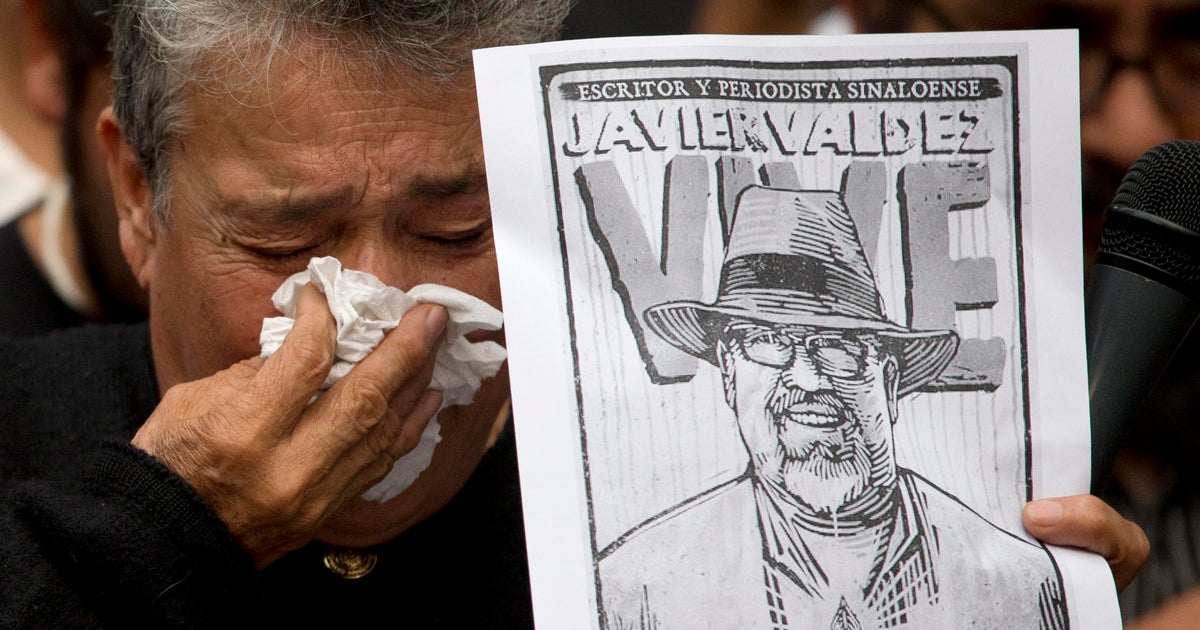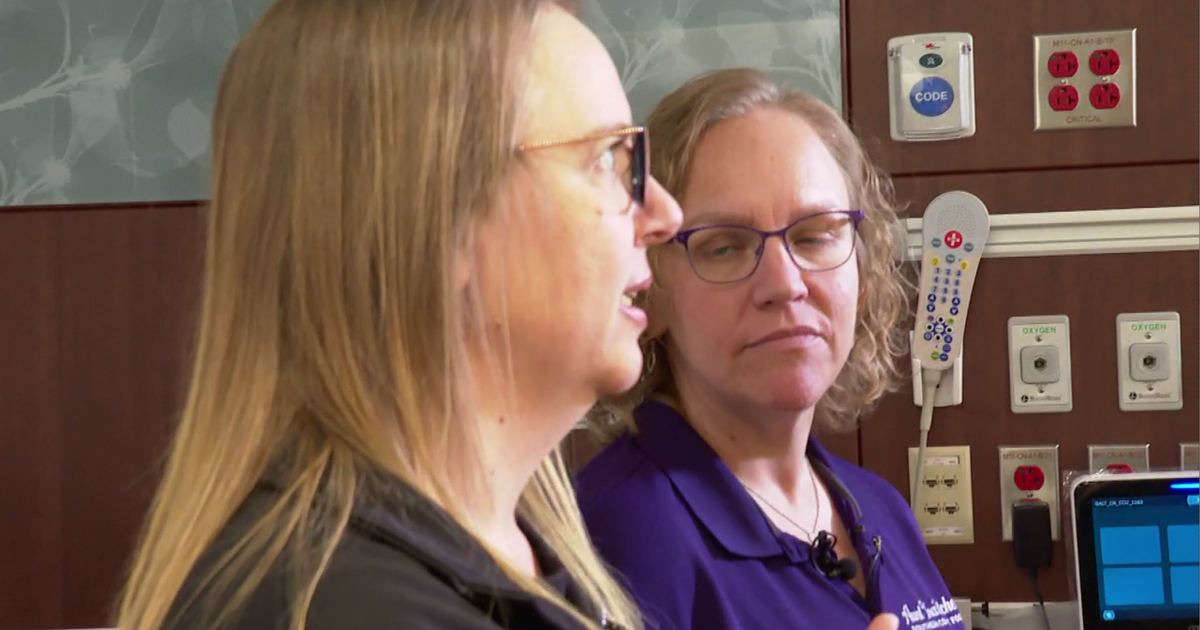CBS News
Germany election results show far-right party set to win first state vote

The far-right Alternative for Germany won a state election for the first time Sunday in the country’s east, and was set to finish at least a very close second to mainstream conservatives in a second vote, projections showed.
A new party founded by a prominent leftist also made an immediate impact, while the parties in Chancellor Olaf Scholz’s unpopular national government obtained extremely weak results.
Projections for ARD and ZDF public television based on exit polls and partial counting showed Alternative for Germany winning 32-33% of the vote in Thuringia — well ahead of the center-right Christian Democratic Union, the main national opposition party, with about 24%.
In neighboring Saxony, projections put support for the CDU, which has led the state since German reunification in 1990, at 31.5-31.8% and AfD on 30.7-31.4%.
“An openly right-wing extremist party has become the strongest force in a state parliament for the first time since 1949, and that causes many people very deep concern and fear,” said Omid Nouripour, a leader of the Greens, one of the national governing parties.
Christian Mang / REUTERS
Other parties say they won’t put AfD in power by joining it in a coalition. Even so, its strength is likely to make it extremely difficult to form new state governments, forcing other parties into exotic new coalitions. The new Sahra Wagenknecht Alliance, or BSW, took up to 16% of the vote in Thuringia and 12% in Saxony, adding another level of complication.
“This is a historic success for us,” Alice Weidel, a national co-leader of AfD, told ARD. She described the result as a “requiem” for Scholz’s coalition.
The CDU’s national general secretary, Carsten Linnemann, said that “voters in both states knew that we wouldn’t form a coalition with AfD, and it will stay that way — we are very, very clear on this.”
Weidel denounced that as “pure ignorance” and said that “voters want AfD to participate in a government.”
Deep discontent with a national government notorious for infighting, anti-immigration sentiment and skepticism toward German military aid for Ukraine are among the factors that have contributed to support for populist parties in the region, which is less prosperous than western Germany.
AfD is at its strongest in the formerly communist east, and the domestic intelligence agency has the party’s branches in both Saxony and Thuringia under official surveillance as “proven right-wing extremist” groups. Its leader in Thuringia, Björn Höcke, has been convicted of knowingly using a Nazi slogan at political events, but is appealing.
Höcke bristled when an ARD interviewer mentioned the intelligence agency’s assessment, responding: “Please stop stigmatizing me. We are the No. 1 party in Thuringia. You don’t want to classify one-third of the voters in Thuringia as right-wing extremist.”
He said he felt “a great, great deal of pride” in Sunday’s result for his 11-year-old party and “the old parties should show humility.”
Scholz’s center-left Social Democrats were at least set to remain in the two state legislatures with single-digit support, but the environmentalist Greens were set to lose their seats in Thuringia. The two parties were the junior coalition partners in both outgoing state governments. The third party in the national government, the pro-business Free Democrats, also lost its seats in Thuringia. It had no representation in Saxony.
A third state election follows Sept. 22 in another eastern state, Brandenburg, currently led by Scholz’s party. Germany’s next national election is due in a little over a year.
Christian Mang / REUTERS
Thuringia’s politics are particularly complicated because the Left Party of outgoing governor Bodo Ramelow has slumped into electoral insignificance nationally. It lost nearly two-thirds of its support compared with five years ago, dropping to around 12%.
Sahra Wagenknecht, long one of its best-known figures, left last year to form her own party, which is now outperforming the Left. Wagenknecht celebrated that party’s success, underlined its refusal to work with AfD’s Höcke and said she hopes it can form “a good government” with the CDU.
The CDU has long refused to work with the Left Party, descended from East Germany’s ruling communists. It hasn’t ruled out working with Wagenknecht’s BSW, which will probably be needed to form any government without AfD at least in Thuringia. BSW is also at its strongest in the east.
AfD has tapped into high anti-immigration sentiment in the region. The Aug. 23 knife attack in the western city of Solingen in which a suspected extremist from Syria is accused of killing three people helped push the issue back to the top of Germany’s political agenda and prompted Scholz’s government to announce new restrictions on knives and new measures to ease deportations.
Wagenknecht’s BSW combines left-wing economic policy with an immigration-skeptic agenda. The CDU has also stepped up pressure on the national government for a tougher stance on immigration.
Germany’s stance toward Russia’s war in Ukraine is also a sensitive issue in the east. Berlin is Ukraine’s second-biggest weapons supplier after the United States; those weapons deliveries are something both AfD and BSW oppose. Wagenknecht has also assailed a recent decision by the German government and the U.S. to begin deployments of long-range missiles to Germany in 2026.
CBS News
Tennessee DA accused of firing multiple times at fugitive, hitting home with woman and her 3 children inside

A district attorney in Tennessee is facing a reckless endangerment charge after shooting at a fugitive several times and hitting a home that had a woman and her three children inside.
The Tennessee Bureau of Investigation announced the grand jury charge Monday against District Attorney Chris Stanford. His district covers Van Buren and Warren counties.
The indictment says that as the incident unfolded in Smithville on Nov. 21, a bullet Stanford shot from his handgun went through a front porch patio chair, through an exterior wall and into the living room wall of the home. The woman and children weren’t hurt.
Smithville is about 60 miles southeast of Nashville.
The indictment says that Stanford fired the shot “unlawfully, intentionally and recklessly.” There was no immediate threat to him or others, he wasn’t aiming the handgun, and “just held it out and shot” without using the gun’s sights, the indictment adds.
Following his indictment, Stanford surrendered at the DeKalb County Jail and was released after posting a $10,000 bond, TBI said. A message left with Stanton’s office was not immediately returned Tuesday.
The Warren County Sheriff’s Office described the circumstances leading to the incident last month. In a social media post, it said authorities were pursuing suspects after finding three dead bodies at a house and at an adjacent building.
The suspects were sighted in DeKalb County, the sheriff’s office said. One of them was taken into custody without incident. Stanford and other law enforcement officials chased the other suspect, who was a passenger in a car, the office said.
While trying to help the suspect flee, the driver struck a homeland security officer with the car, the sheriff’s office said.
In a statement last month to CBS affiliate WTVF-TV, Stanford said he fired shots in response to the homeland security agent being hit. No one was shot when Stanford fired his gun. The homeland security officer was injured and taken to the hospital, according to a social media post by District Attorney Bryant Dunaway.
“The vehicle then drove toward me and others, accelerating quickly. I fired my service weapon in defense of myself and others at the scene. Based upon my training and the circumstances that presented themselves, I believe my actions were necessary and justified,” Stanford said.
Stanford also told the news station he has a state law enforcement certification to carry his weapon at all times.
The two suspects in the three deaths were taken into custody and charged with criminal homicide, while the driver, also taken into custody, faces felony evading arrest and aggravated assault charged, according to the sheriff’s office.
Stanford will make an appearance in court on Jan. 7, WTVF reported. Since he showed up at the scene and fired his weapon, he is now a witness and cannot prosecute the triple murder in his own county, the station reported.
CBS News
Accused mastermind of journalist’s murder wanted by Mexico — but U.S. has called him a “protected witness”

Mexico has asked the United States to extradite the suspected mastermind behind the murder of journalist Javier Valdez after he was arrested on drug charges, the attorney general said.
Damaso Lopez Serrano — who the Justice Department says is known as “Mini Lic” — is accused of ordering the 2017 killing of Valdez, an award-winning journalist and AFP contributor who covered the narcotics trade.
The alleged former high-ranking member of the Sinaloa Cartel was arrested on Friday in Virginia on charges of trafficking fentanyl. Lopez Serrano is the son of Damaso Lopez Nunez, who launched a struggle for control of the cartel following the arrest of its leader, Joaquin “El Chapo” Guzman.
Mexico’s Attorney General Alejandro Gertz described Lopez Serrano as the “mastermind” behind Valdez’s murder.
“We have already prosecuted the rest of the perpetrators and they are in jail,” he told a news conference.
Valdez was shot and killed in his car on May 15, 2017 in the Sinaloa state capital of Culiacan near the offices of his weekly newspaper Riodoce.
Enric Marti / AP
Investigators believe Lopez Serrano ordered the hit because he was angry about information published by Valdez about the Sinaloa Cartel’s internal power struggles.
Mexico has made several extradition requests for Lopez Serrano, who surrendered to U.S. authorities in July 2017 for drug trafficking and cooperated in exchange for a reduced sentence. At the time, the U.S. Drug Enforcement Administration said Lopez Serrano was “believed to be the highest-ranking Mexican cartel leader ever to self-surrender in the United States.”
He was released from prison on parole in 2022.
Gertz said that Mexico had asked “on countless occasions” for Lopez Serrano to be handed over, but Washington declined because he had become a “protected witness” and “was giving them a lot of information.”
He voiced hope that with Lopez Serrano’s latest arrest “there are more than enough reasons” for the United States to finally grant Mexico’s request.
Rebecca Blackwell / AP
Wracked by violence related to drug trafficking, Mexico is one of the world’s most dangerous countries for journalists, news advocacy groups say.
Reporters Without Borders says more than 150 newspeople have been killed in Mexico since 1994 — and 2022 was one of the deadliest years ever for journalists in Mexico, with at least 15 killed.
Media workers are regularly targeted in Mexico, often in direct reprisal for their work covering topics like corruption and the country’s notoriously violent drug traffickers.
Most recently, in October, gunmen killed a journalist whose Facebook news page covered the violent western Mexico state of Michoacan. Then less than 24 hours later, an entertainment reporter in the western city of Colima was killed inside a restaurant she owned.
CBS News
2 sisters, 7 years apart in age, also receive heart transplants 7 years apart in Chicago

CHICAGO (CBS) — Two sisters have grateful hearts after they both received heart transplants at the same age—seven years apart.
Younger sister Meredith Everhart and older sister Abbey Cannon are now bonded by a genetic condition and a second chance at life.
“What’s ironic is that when she needed a heart transplant, was exactly the same age I needed a heart transplant,” said Cannon. “Seven years apart in age, seven years apart within 30 days of transplant, and our birthdays are within 30 days.”
The sisters share a special bond of getting a second chance at life, which they both received at the age of 38 years old.
Both sisters suffer from hypertrophic cardiomyopathy—otherwise known as HCM.
The genetic condition is a form of heart disease that causes the heart muscle to thicken.
In 2012, Cannon had chest pain. She was misdiagnosed in Nashville, Tennessee, and got a second opinion at Northwestern Medicine in 2016.
“Within six months, I was inpatient on an aortic balloon pump waiting for a heart,” Cannon said. “I ended up getting my heart 32 days later, So my date is February 27, 2017.”
Just months after Cannon’s transplant, Everhart was diagnosed with HCM too. She tried medication and participated in clinical trials, but her condition kept getting worse.”
“For me, it was, she’s right—I was in denial for a long time,” said Everhart, “and I didn’t want to be sick. I was in my 20s. I was in my early 30’s. I was like, this is not happening. I saw how bad she suffered.”
In May 2022, Everhart got COVID-19, and it sent her into heart failure.
She was added to the transplant list one year later.
“I got the call on January 29 of this year, 2024, and it’s been a journey,” Everhart said. “It’s been fantastic though. Northwestern has been great.”
Cannon said she can’t stress enough how important it is to become an organ donor.
“Had we not had someone that gave that most selfless gift, neither of us would be here,” she said.












